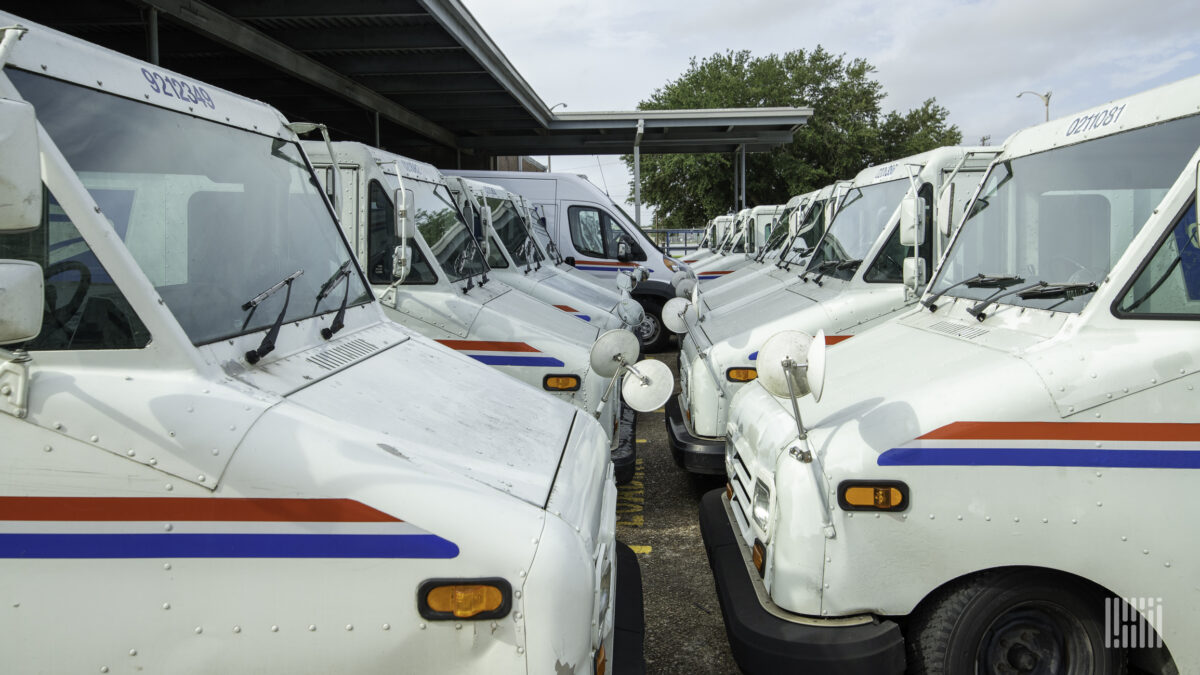WASHINGTON — Stolen electric vehicle charging station equipment and office thefts at the U.S. Postal Service are troubling signs for agency watchdogs as the Postal Service begins moving toward electrifying its delivery fleet.
Concern about the thefts and the ability of the Postal Service to protect its assets appears in a new audit report published by the Postal Service’s Office of Inspector General (OIG).
“We found that management controls over the storage of charging stations … were not effective,” according to the OIG. “Specifically, facility management did not employ necessary physical safety measures designed to protect and deter the theft of Postal Service assets.”
Lax safeguards at a facility in Topeka, Kansas, led to two thefts valued at approximately $59,700 for stolen information technology assets such as computer monitors, printers and docking stations, along with $7,700 worth of stolen charging station equipment.
The thefts occurred in 2023 during the initial phase of the agency’s fleet replacement strategy, which includes acquiring 106,000 vehicles with deliveries expected through 2028.
Details of the plan, announced in 2022, include at least 66,000 battery electric delivery vehicles, including 45,000 purpose-built battery electric-powered Next Generation Delivery Vehicles (NGDVs) and 21,000 battery electric-powered commercial-off-the-shelf (COTS) vehicles. All NGDVs, with deliveries beginning in 2026, and COTS vehicles, with deliveries between 2026 and 2028, will be 100% electric.
To prepare for EV deployment, the agency awarded charging station contracts for the COTS vehicles to three suppliers in February 2023.
After initial testing, the Postal Service monitored charging station performance at the three locations, from May to July, to evaluate short-term reliability. The testing and monitoring phase of the charging stations was acceptable, according to the OIG.
“We found that the Postal Service conducted effective contract oversight … to verify that charging stations conformed to certain requirements identified in the contracts’ statements of work,” according to the report.
“In addition, we found the Postal Service effectively conducted performance monitoring to evaluate the charging stations’ short-term reliability. As a result of completing the testing, the Postal Service gave conditional acceptance to all three suppliers, with the stipulation that … issues identified during testing be resolved for full acceptance.”
The Postal Service is developing long-term performance monitoring plans, according to the OIG, which are not yet finalized. “As such, we were unable to evaluate or conclude on the overall reliability of the charging stations,” the audit noted. “Given the magnitude of the investment to deploy up to 41,500 charging stations to facilities throughout the delivery network, the choice to test and monitor their performance was prudent. Therefore, we will not be making any recommendations related to testing at this time.”
As for the asset thefts, the Postal Service began “corrective actions” with plans to address safeguards at its equipment storage facilities, according to the audit. However, until those safeguards are in place, “assets related to charging stations stored at the [Kansas facility] are considered at risk of theft,” the OIG warned.











Andreas
A lot of companies are reporting an extreme increase of theft and based on the magnitude it looks like this is organized. This kind of equipment is very specialized and can not be used everywhere. This is not only a customer theft this is internal within the employees and I am wondering why this is not tackled already earlier. Either companies are not taking this serious enough or it is even within the management which leads me to the organized crime theory. In the end it is the customer has to pay for the damage and has nothing to do with inflation as it is called all the time
Bucky
When someone does not own the asset they are less likely to care about preserving that asset.